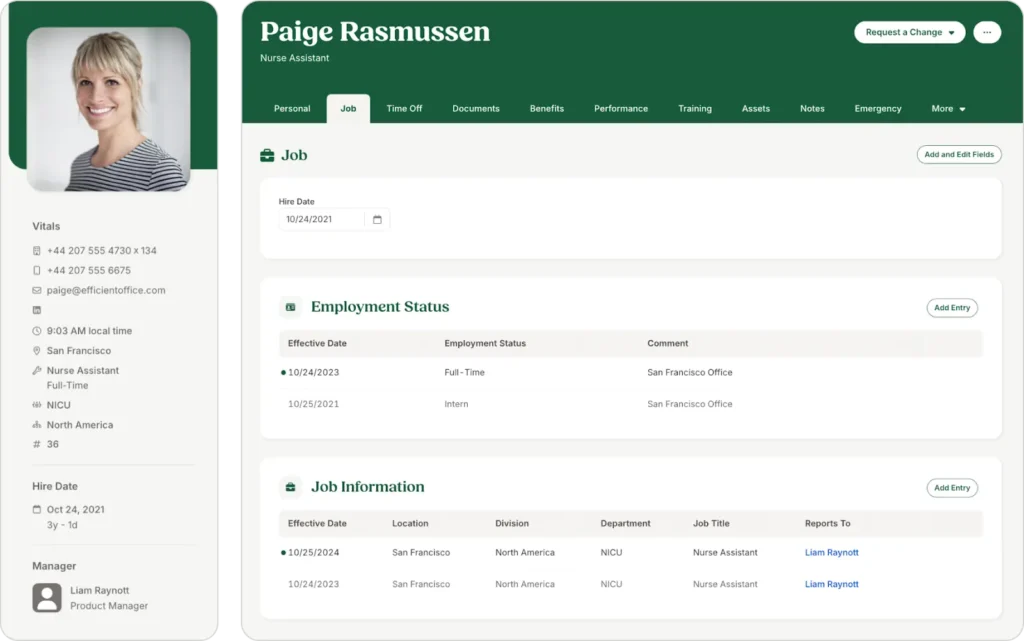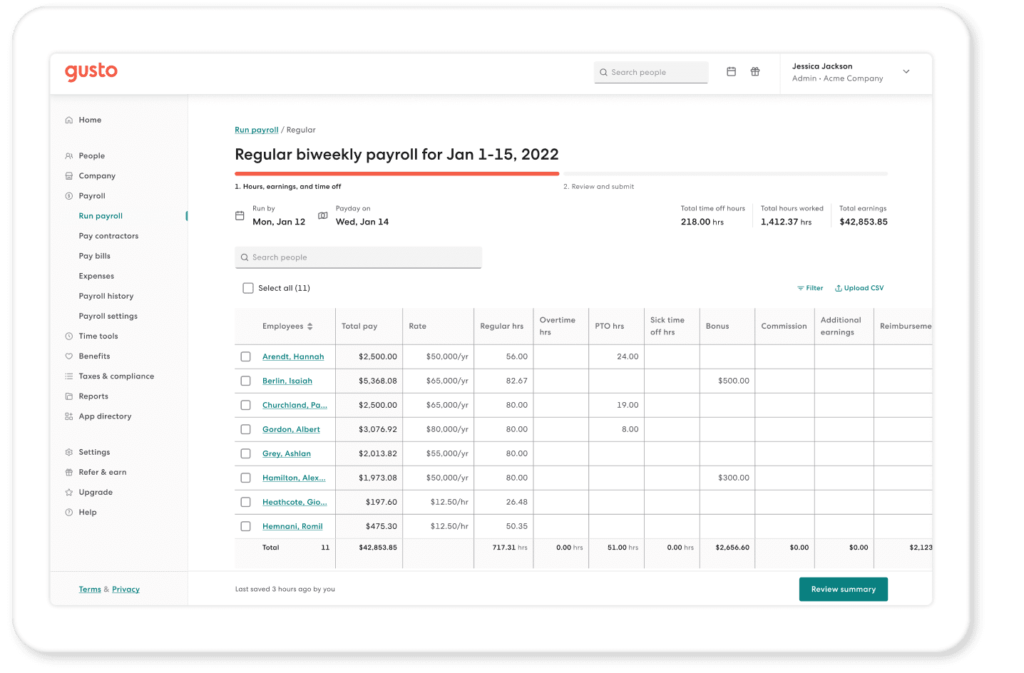Top 10 Best HRIS Systems for Healthcare
Managing human resources in healthcare requires a special approach. Every healthcare organization needs a HR software that handles complex scheduling, credential management, compliance tracking, and workforce analytics while ensuring HIPAA compliance. A Human Resource Information System (HRIS) made for healthcare can simplify these processes, improve efficiency, and enhance workforce management.

HR teams rely on an HRIS to handle tasks more efficiently and make informed decisions based on data. While most HR information systems come with essential tools for managing HR processes from start to finish, not all of them function the same way. Some cater to large enterprises, offering extensive capabilities, while others focus on small businesses with simpler, budget-friendly solutions. Features differ across platforms, and many allow adjustments to fit specific requirements like a healthcare organization.
Below are the ten best HRIS systems for healthcare professionals and organizations.
10 Best HRIS Systems for Healthcare
1. BambooHR

BambooHR is well-suited for small to medium-sized healthcare organizations. It simplifies HR tasks, helping save time and run effective initiatives with features like task automation, a centralized employee database, instant reports, and access to over 100 app integrations. Its user-friendly interface makes it a go-to option for healthcare organizations that want straightforward and efficient HR management.
One of the standout features of BambooHR is its mobile app, which makes it easy for HR teams and employees to handle tasks on the go. Whether they need to review time-off requests, check announcements, or sign documents electronically, everything is just a few taps away.
Key Features
- Applicant tracking system (ATS)
- Employee self-service portal
- Performance management tools
- Time-off tracking
- Intuitive user interface
Pros
- Exceptional customer support
- Easy adaptability for employees
Cons
- Does not offer as much features as other HR software
- There are only a few templates available for performance reporting.
Pricing
To get accurate pricing contact vendor for price. Bamboo also offers a free trial plan.
Despite the cons the software understands the demanding schedules of healthcare workers, which is why it simplifies HR tasks with automation and offers an all-in-one platform for your HR needs. With its easy-to-use tools, BambooHR helps boost job satisfaction and improve employee retention.
2. Connecteam

Connecteam makes it easy to recognize and reward employees. With features for recognition and rewards, every team member has access to an in-app chat and an employee directory. The platform is simple to use, works on various devices, and offers many tools for managing healthcare staff, including shift planning, time tracking, engagement, and compliance. You can schedule medical staff for different roles with its flexible scheduling tool, ensuring everything runs efficiently. If you need to make changes, you can quickly find replacements for last-minute shifts. Plus, it gives you full control over your healthcare workers’ shifts, whether they’re day or night shifts.
Key Features
- Employee training and onboarding.
- Centralized system for managing HR documents.
- Smart communication tools help improve team collaboration.
- Time off requests are managed efficiently within the system.
Pros
- Suitable for both small businesses and large corporations.
- Keeps user data safe and protected.
- Simple and easy-to-use interface.
- Quick and responsive customer support.
Cons
- There is no phone support available.
- It lacks built-in recruitment and payroll features.
- Integration options with other systems are limited.
Pricing
Connecteam HRIS system offers 5 different plans
- The Small Business Plan is completely free for up to 10 users.
- The Basic Plan costs $29 per month (billed annually) and covers the first 30 users. Each additional user costs $0.50 per month.
- The Advanced Plan is priced at $49 per month (billed annually) for the first 30 users, with an extra $1.50 per month for each additional user.
- The Expert Plan costs $99 per month (billed annually) for the first 30 users, while each extra user is $3 per month.
- For Enterprise Plans, pricing is customized based on specific business needs.
Ideal for healthcare teams looking for a mobile-friendly way to manage their workforce, track hours accurately, and organize shifts efficiently.
3. APS
APS healthcare HR software helps medical facilities handle employee schedules, compliance requirements, and payroll processing all in one system. The software recognizes that managing time tracking, labor distribution, and regulatory compliance is essential in healthcare. Instead of dealing with paper-based processes, you need an efficient solution that allows you to focus on delivering quality patient care.
Key Features


